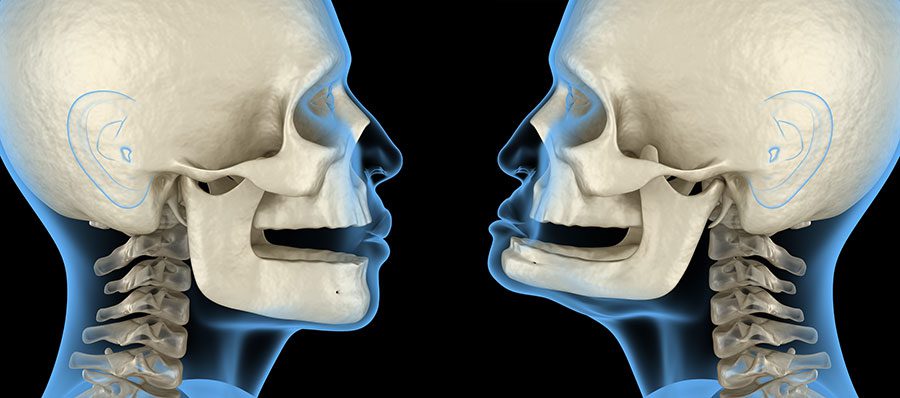3 Minute Read:
Missing one or more teeth can be painful, embarrassing, and downright inconvenient. This can all be more complicated if you suffer from anxiety associated with the dentist, resulting in you putting it off for as long as possible.

However, leaving oral care for too long can cause more issues than you might think, especially if you have missing teeth. One such issue is jawbone resorption, which can diminish jaw and facial structure.
Below, we will discuss jawbone resorption, how it occurs, and how to prevent it.
What Is Jawbone Resorption?
Throughout your life, your bones go through a constant process of resorption (removing old bone) and ossification (adding new bone where needed). However, bone mass decreases when the resorption process happens so quickly that new bone cannot be added efficiently enough.
Bone is replaced and added to areas where it is most needed, with the cells responsible for rebuilding bone (osteoblasts) receiving signals from various body parts. For the jaw, signals are sent to the osteoblasts to keep rebuilding bone whenever you chew or bite (exert pressure on the teeth).
When you are missing teeth, osteoblasts no longer receive signals to keep adding new bone, slowing down the ossification process while the resorption process continues at the same rate. This results in a loss of bone mass and density, and the longer you go without proper care, the worse the condition will become.
The Unwanted Effects of Jawbone Resorption
The results of jawbone resorption can include the following:
- Loss of teeth
- Pain while talking, chewing, or eating
- A need for refitting traditional dentures that may become loose
- Loss of facial structure; jaw may appear sunken in, with the chin appearing pointed
- Premature wrinkling of the skin around the mouth; thinning of the lips
As these symptoms can worsen with time, seeking dental care as soon as possible is important because there are ways to prevent jawbone resorption.
How to Prevent Jawbone Resorption
It’s always best to practice proper oral hygiene, including brushing twice daily, flossing, and regular dental visits. However, even with diligent oral care, jawbone resorption can still occur if you are missing teeth for any reason.
In this case, it may be in your best interest to consider dental implants. As dental implants are surgically implanted into the jaw, they function just like your natural teeth — and can help regulate the ossification process.
If bone loss is too advanced for implantation, your dentist may need to begin treatment with a bone graft before surgery.
Once you have decided to seek dental implants, you can look forward to many benefits, including regulated ossification, a more attractive overall appearance, and improved jaw and teeth function.
Leading the team at Chicago Dental Arts, Dr. Fedin is considered one of Chigaco’s leading dentists and implantologists and has performed over 4,000 implant procedures. At this facility, patients have a wide range of implant options available, including full implants, multiple implants, and All-on-4® Implant-supported dentures.
Want to Learn More About Preventing Jawbone Resorption?
Chicago Dental Arts in Chicago, Illinois, can help you prevent jawbone resorption with multiple options available. Call us today at (312) 642-6631 or fill out our online contact form.
